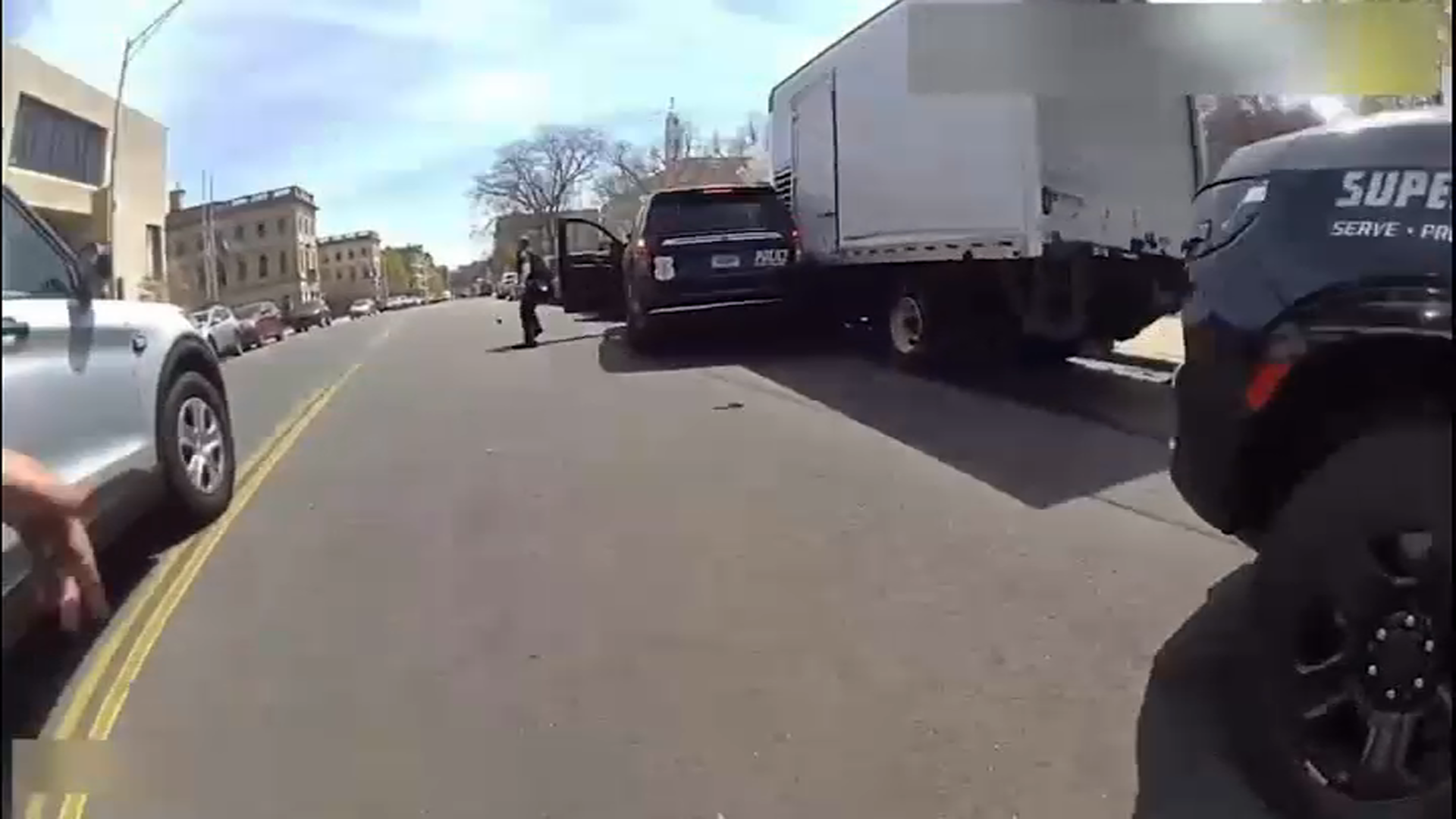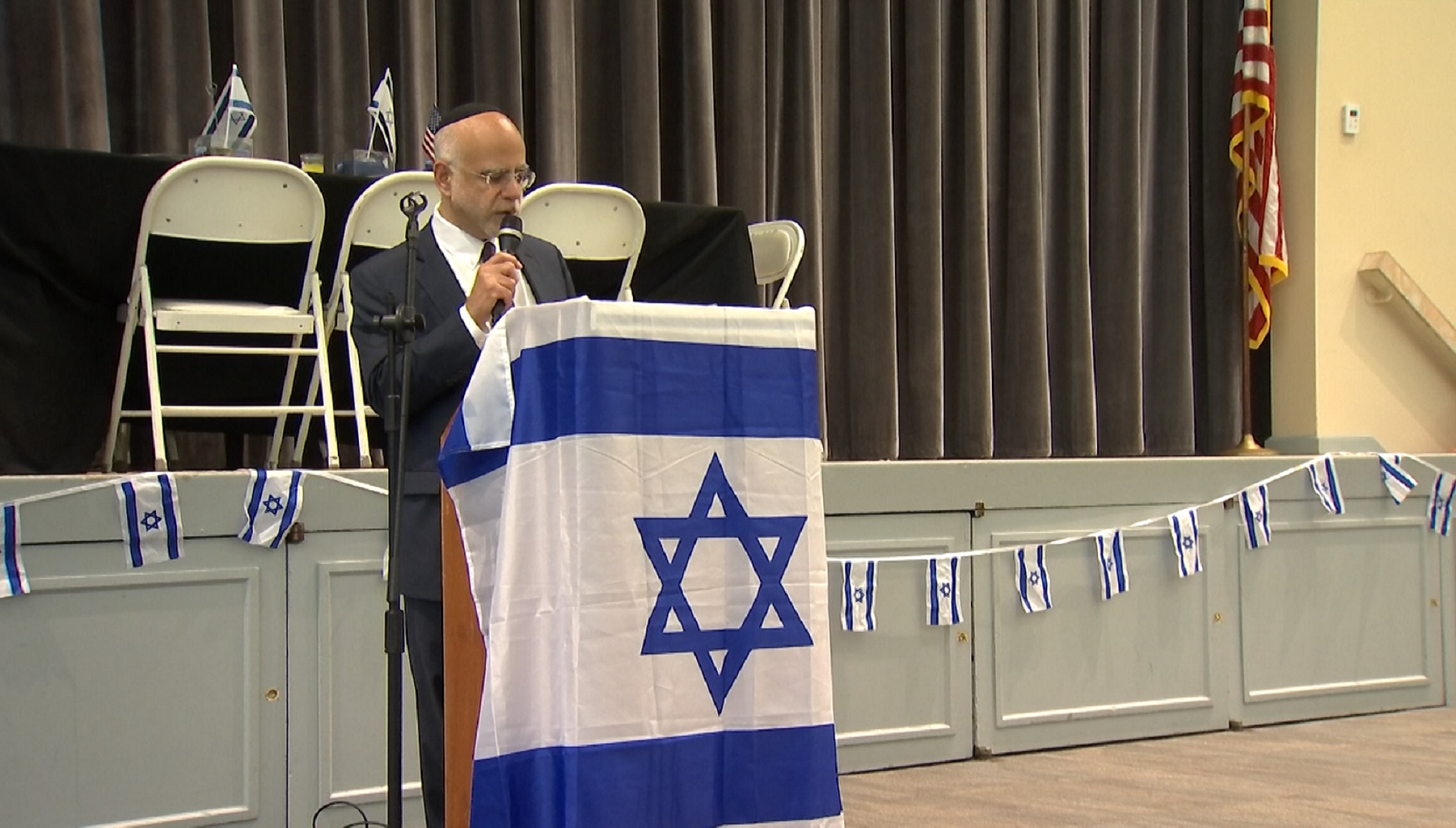There’s a new skate bowl on George Street in New Haven, part of an art installation for Artspace New Haven’s Open Source Festival 2021.
Steve Roberts grew up in New Haven’s Newhallville neighborhood and discovered skateboarding at 13 years old.
“And then my bike got stolen one day and I was like ‘you know what, I’m just going to stick with my skateboard and if anybody takes that, I’ll know,” said Roberts, who has loved the sport since he was a kid.
Stream Connecticut News for free, 24/7, wherever you are.
“A lot of my time was between skating in my driveway and skating at Edgewood.”
He’s developed a crew of creative skaters of color. For him, there’s a fluid connection between black culture and a skateboard.
Get top local Connecticut stories delivered to you every morning with the News Headlines newsletter.
“The lightbulb moment is when I tell people skateboard sessions operate like hip hop cyphers,” said Roberts. “And they’re like ‘oh, okay!’ It’s very improvisational, you get support but also maybe a little bit of competition.”
He’s at a new skate bowl on George Street, which is an art installation for part of Artspace New Haven’s Open Source Festival 2021.
“I understand that skateboarding, skateboarders are often artists, musicians, writers, visual artists,” said Lisa Dent, Executive Director of Artspace New Haven. “It is a community that’s often radical, often thinking about public space in really interesting ways, and I knew with the goals of our festival that this was the right kind of project for us to bring to New Haven.”
Local
The Open Source Festival will have more than two hundred artists around the city in studios and on Orange Street. They’ll show off their artwork and talent in a number of different ways.
“They’re all over the city, so people are invited to come in see artists work, people are talking about their work artists are also selling their work,” said Dent.
The skate bowl is described as a living sculpture, created by people using the tools and skills to build works of art. And, it is the place where artists come together and develop their skills on the skateboard.
“Skateboarding was the first space where I really saw that people from every background, gender, racial background, socioeconomic status, that they got together to discover and learn something together,” said Dr. Neftalie Williams, a fellow at Yale University’s Schwarzman Center where he is studying the history of skaters of color.
He says having this bowl downtown for the next few months is an opportunity for more people of color to experience skateboarding.
“Maybe they’ll look at skateboarding on TV and see ‘oh that’s for someone else, that’s for someone else’s community.’ But that’s not the case. It’s always been people of color who’ve driven it.”
It’s also a chance for people to discover the city’s skating scene. Ahmed Elzamzami is a medical student at Yale University. He says most of his time is spent socializing with other med students, and he was excited to find people who share his same excitement for skateboarding.
“It’s nice seeing this community here. I didn’t know it existed so it’s really cool,” said Elzamzami.
“Honestly I want to see more and more kids from New Haven skateboarding,” said Roberts, who started the Push to Start Skate Program for city kids and teaches classes on Saturdays. “You really start to see these kids have a lot of self-confidence, the power of positive thinking.”
The skate bowl who will be on George Street for the next few weeks and will move around the city for the next eight months, bringing everyone in the skating community together.
“People need more examples of what allyship looks like, where it’s all people of color and non-people of color, together finding something that they love,” said Williams.



